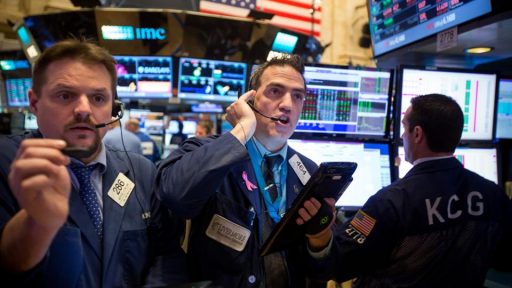- Home
- >
- Great Traders
- >
- 4 successful investors predict when the stock market will crash

4 successful investors predict when the stock market will crash

Just when you thought it was safe to be in the market again, the Dow Jones industrial average sank more than 420 points, or just under 2%, on April 24.
By one measure, Wall Street hasn't been this scary since the depths of the global financial panic in 2009. So is this the end of the bull market?
Most market watchers say no. In fact, only 18% of money managers surveyed by Bank of America Merrill Lynch believe that stocks have peaked.
Yet the market is historically frothy after a near-record nine-year bull run. And if history teaches us anything, it's that the key to success in investing is a willingness to go against the grain.
That's what these four well-known strategists are known for. And their warnings about impending market doom shouldn't go unheeded.
David Stockman
Who he is: Former budget director for the Reagan White House; former investment banker with Salomon Brothers; former private equity investor.
When to expect the worst: Imminent. "There is surely a doozy just around the bend."
His reasoning: Stockman expects "an epic monetary and fiscal (policy) collision," he told CNBC. On the one hand, the recent tax cuts enacted by Congress are likely to help push the federal budget deficit to nearly $1 trillion next year. At the exact same time, the Federal Reserve is starting to unwind its sizable bond portfolio— which it amassed in the aftermath of the financial crisis to keep bond yields low to juice economy activity.
The result of the Treasury Department and Fed both selling mountains of U.S. bonds in the open market? A monumental jump in market interest rates that will likely spook the historically frothy stock market.
Yet investors seem to be in denial, he said, adding that "the market is whistling past the graveyard."
Scott Minerd
Who he is: Global chief investment officer and chairman of investments for Guggenheim Partners
When to expect the worst: 2019. "The markets are potentially on a collision course for disaster."
His reasoning: Strong fiscal stimulus at the end of this business cycle, at a time when the economy is already at so-called full employment, is likely to force the Federal Reserve to step in and be more aggressive with interest rate hikes to try to keep inflation in check, Minerd fears.
As market rates spike, it will be that much harder for financially weak companies to meet their obligations, especially after the initial impact from the Trump tax cuts subside.
Short-term rates only need to reach 3% to increase corporate defaults, according to Minerd, who expects the Fed to raise rates four times in 2018 and "probably four times next year." That implies short-term rates will hit 2.5% to 2.75% a year from now and will be 3.25% to 3.5% a year after that.
Paul Tudor Jones
Who he is: Famed hedge fund manager and founder of The Tudor Group. He is credited for having called the October 1987 market crash.
When to expect the worst: As soon as next year. "We are replaying an age-old storyline of financial bubbles that has been played many times before."
His reasoning: "We have the strongest economy in 40 years, at full employment. The mood is euphoric. But it is unsustainable and comes with costs such as bubbles in stocks and credit," Jones said in an interview with Goldman Sachs.
The notoriously media shy hedge fund billionaire believes a recession is coming in the next year or so, because the Fed took too long to raise rates to keep the economy from overheating.
Ray Dalio
Who he is: Famed investor and founder of Bridgewater Associates, the world's largest hedge fund.
When to expect the worst: By 2020. "I think we are in a pre-bubble stage that could go into a bubble stage."
His reasoning: The chance of the U.S. economy suffering a recession before the next presidential election is around 70%, Dalio said at a recent appearance at the Harvard Kennedy School's Institute of Politics.
The influx of cash into the market, both due to Trump's tax cuts, and future initiatives - like an infrastructure bill - combined with a strong economy will force the Federal Reserve to raise rates to combat inflation. That's never an easy task for the Fed. "The risks of a recession in the next 18-24 months are rising," wrote Dalio.
Source: Bloomberg Pro Terminal
 Trader Aleksandar Kumanov
Trader Aleksandar Kumanov Read more:
If you think, we can improve that section,
please comment. Your oppinion is imortant for us.











